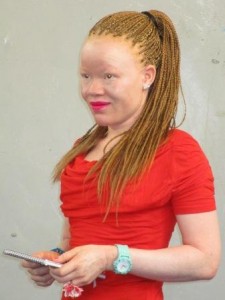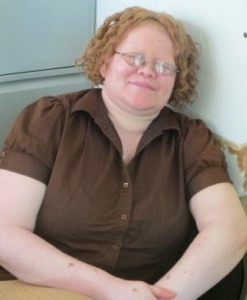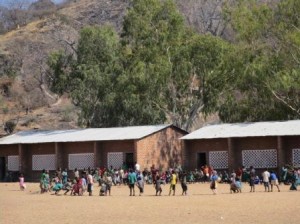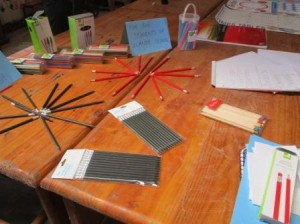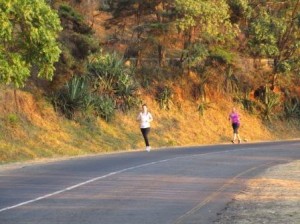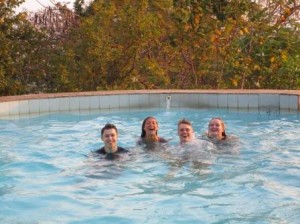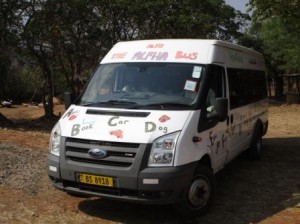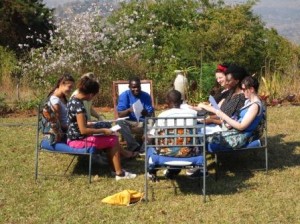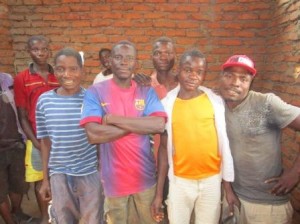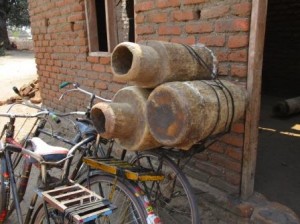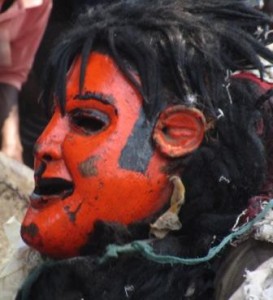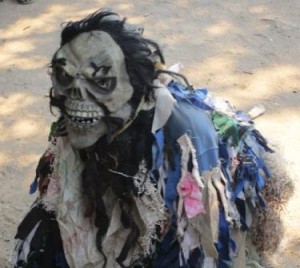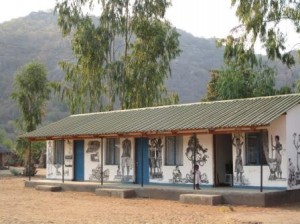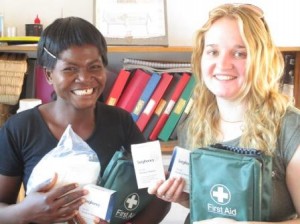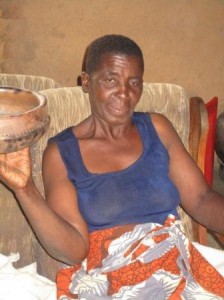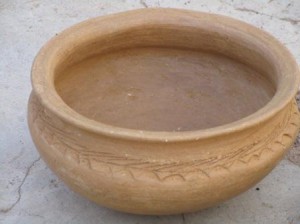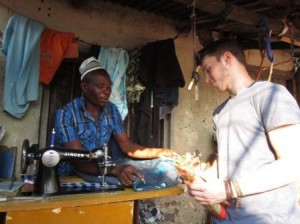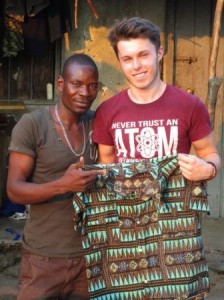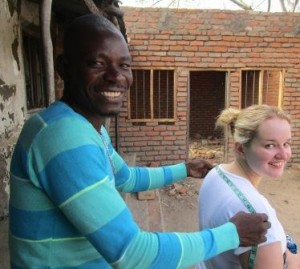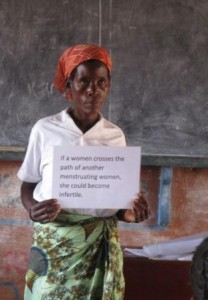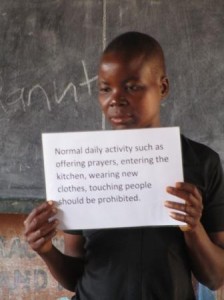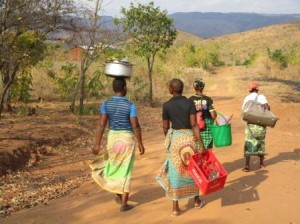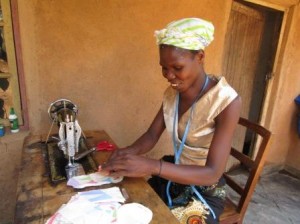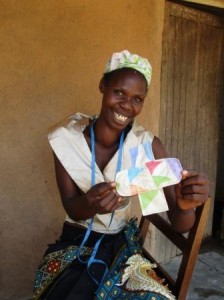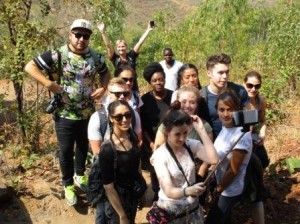This is Tume, she’s twenty years old and has recently (2016) graduated with a degree in Social Sciences, majoring in Economics. She is one of seven children, four of whom have albinism. Her parents and siblings are very supportive of her.
Tume’s early education
Tume learned about her albinism when she was in standard 8, until then she just knew that she was short sighted and had to keep out of the sun because it hurt her skin. The area Tume grew up in was particularly hot; this caused her problems and meant that she could not go out to play with her friends. She now uses sun cream, an umbrella, hats and sunglasses to protect herself from the sun.
Tume always sat at the front of the class because of her poor eyesight; students made fun of her and called her ‘teacher’s pet’. She was provided with large print papers for exams but always had to ask for materials, they were never just given. Even now that she is at college, some of her lecturers are not supportive and some students won’t let her sit at the front.
What helped in Tume’s success
Tume faced discrimination when she went to church or to the market and people would call her names. Her parents are very supportive and have worked hard to get her to where she is. Their support, her determination and faith in God have got her to where she is today.
“God has kept me going”
Tume’s role in advocacy for people with albinism
Tume is an advocate for the local Association of Persons with Albinism in Malawi (APAM) and this has helped her to realise she is not alone and she is not the only person going through these struggles.
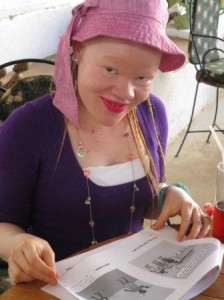
Tume gives her views on an information booklet for children as part of the Albinism in Africa project
Bryony (DASH to Malawi trip 2015) comments on meeting Tume and Emmie (also one of the Achievers with Albinism highlighted on this blog):
It was wonderful to listen to Emmie and Tume tell us about their lives and the challenges that they have faced, and over came, as a result of their albinism. They have demonstrated that although they have albinism, it does not define them.
Emmie and Tume are not only role models within albinism; they are role models for all. They are strong and determined women who have overcome what the world has thrown at them while aspiring to help others in similar positions. Through all of this, they have become the successful women that they have – we could all learn from them.

